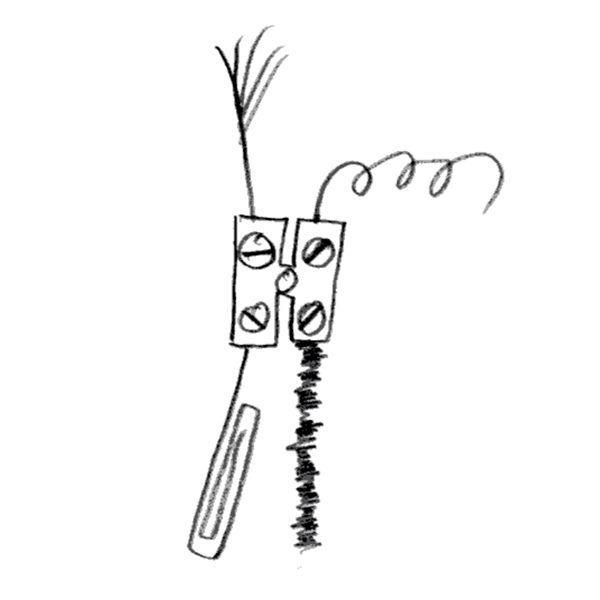Avant-garde composer John Cage wrote a piece in 1960 titled Cartridge Music. This concept was this: a cartridge from a phonograph pickup is dismembered, the needle replaced with “all manner of unspecified small objects.” Pipe cleaners, matches, feathers and wires were sounded against surfaces, walls, bodies and floors in order to amplify the small sounds of vibration that occurred on contact. Cartridge Music is an example of a type of work produced as part of the Fluxus Movement. Fluxus artists, like Cage, often produced work in the form of “events”, which provided a set of instructions about how the work should be performed, but left much open to circumstance and chance of the moment of enactment.
Date: Saturday 6/16 2018
Upcoming labs on July 14 and August 11 2018
Time: 3 pm
Location: Governors Island Nolan Park Building 8a
Much like the pickups used in Cartridge Music, piezo disks are small components that use the electric properties of crystals to generate signal. In this workshop, we will use piezo disks as contact microphones in order to sonify and amplify hidden resonances within commonplace objects that surround us. Drawing on ideas from Nic Collins’s Handmade Electronic Music: The Art of Hacking Hardware, we will use vibratory materials to create our own DIY instruments, which we will amplify and perform with together in the Harvestworks Governor’s Island house. Attendees will have the chance to try hands on soldering. You should also come with objects that you might use to create amplified signal i.e. metal utensils, bowls, plastics, anything with interesting sonic potential. We will have an assortment of small materials on hand.
BIOS (subject to change)
Rebecca Uliasz conducts research in the intersections of live electronic performance, audio and visual processing, machine learning, and phenomenology. Her work commonly takes the form of interactive installation, time-based performance, A/V noise improvisation, custom made hardware and software tools, and multi-media collaboration. She is currently a PhD candidate in the department of Computational Media, Arts, and Cultures at Duke University, where she is also a fellow in the John Hope Franklin Humanities Center PhD Lab in Digital Knowledge







